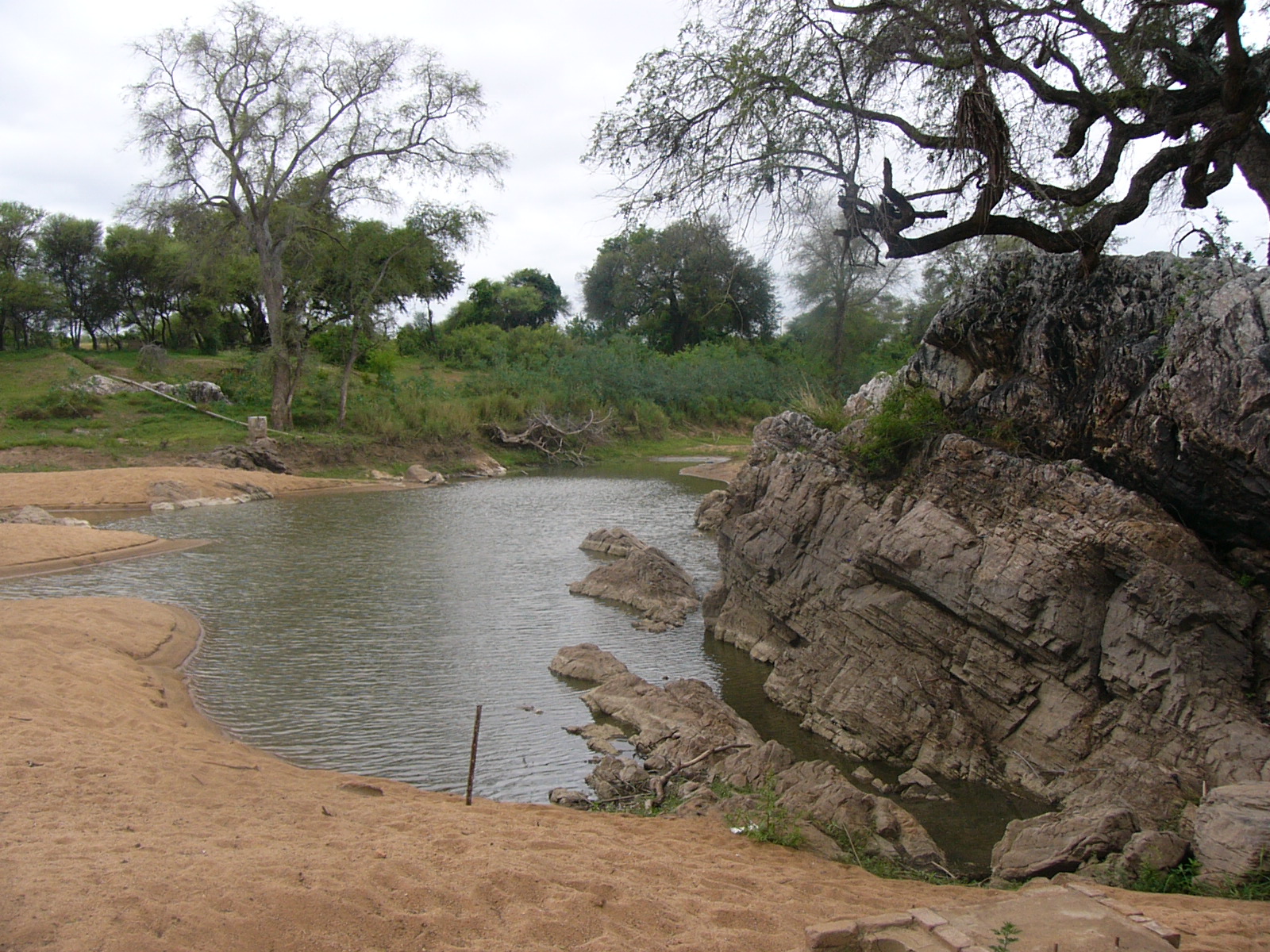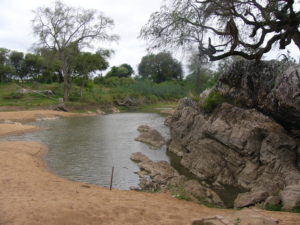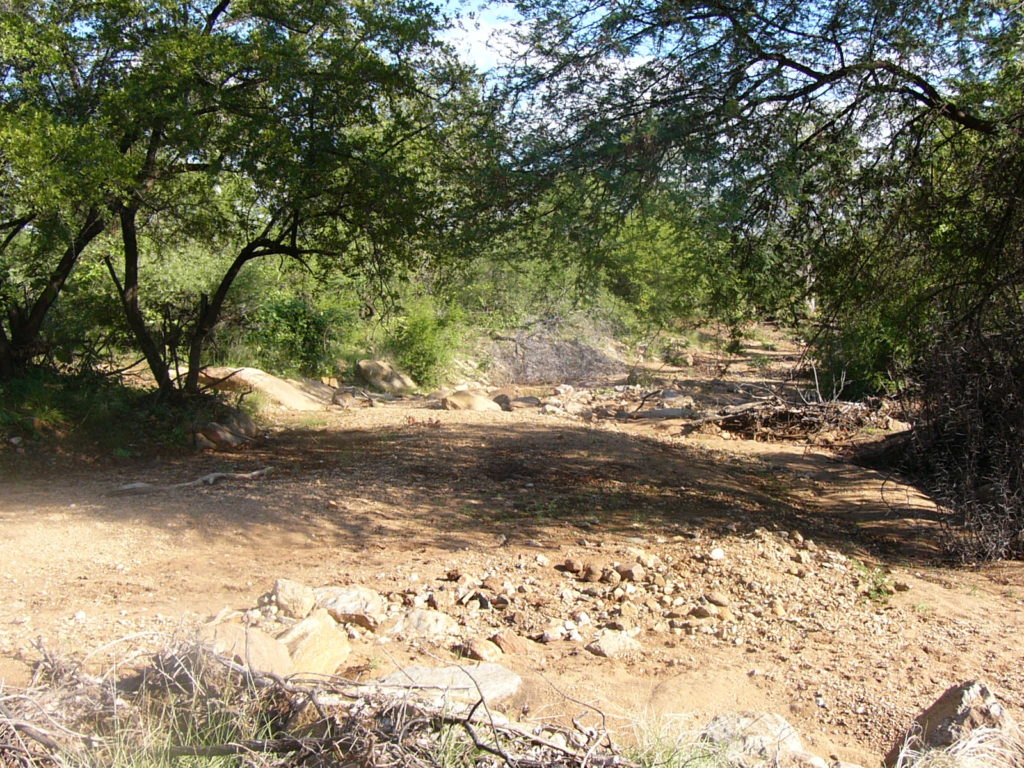
29 Dec Botswana — Dr Livingstone Presumes
When the great missionary David Livingstone arrived on the banks ot the Ever-Flowing River he convinced the Kwêna people to cast aside their rainmakers in favor of Jesus.

The Good News came to the edge of the Kalahari Desert in the 1840’s. It arrived in the person of David Livingstone, his wife, Mary, their young children, and a commission from the London Missionary Society to do good.
Chief Sechele, leader of the Kwêna people, would have been the most enthusiastic convert in all of Southern Africa if Livingstone hadn’t a thing about wives. And not in a good way. Sechele had five.
Call it envy if you want, but Livingstone only had Mary, and became insistent that four of Sechele’s had to go. The chief wasn’t happy about it, but he was a modern, progressive chief and didn’t want to be left behind, so he did what he was told. Also, Livingstone wasn’t so sure about heathen practices. He’d arrived during a drought and nagged Chief Sechele into casting aside the local rainmakers in favor of Jesus.
The Good Doctor should have looked more closely into his candidate’s background before recommending Him for a position for which He hadn’t shown any qualifications. Sure Jesus was just the man if you wanted a storm quelled, or ran out of wine during a wedding, or needed to reattach an ear to a Roman soldier; and the go-to guy par excellence for casting demons into a herd of swine or walking out across a lake, nobody better for that sort of work. But He was new to this part of Africa and nothing in His vitae suggested a talent for rainmaking.
When the rains didn’t come, Livingstone convinced the chief to move the tribe to the banks of the Ever-Flowing River. On the Kolobeng they could build a dam, dig irrigation canals, plant crops and turn into Englishmen no matter what the weather did.
A year went by. They had the dam, the canals, the crops and a school. Livingstone introduced Western medicine and built Sechele a house. In all the neighboring tribes rainmakers kept dancing and, everywhere except on Kwêna land the rains came and tribes prospered. But for Sechele’s people, nothing but drought.
Another year went by. The Ever-flowing River stopped flowing. Livingstone’s daughter died, Mary lost faith in the enterprise, scooped up the still-living Livingstone children, beat feet back to England and the Bakwêna began to worry they’d backed the wrong horse.

When Livingstone started measuring the soil temperature at 137 degrees, even he had to admit things hadn’t gone as planned. “Indeed,” he wrote, “not ten inches of water fell during these two years, and the Kolobeng ran dry; so many fish were killed that the hyenas from the whole country round collected to the feast, and were unable to finish the putrid masses.” It was Chief Sechele’s uncle who finally laid it on the line:
”We like you as well as if you had been born among us;” he told Livingstone, “you are the only white man we can become familiar with; but we wish you to give up that everlasting preaching and praying; we cannot become familiar with that at all. You see we never get rain, while those tribes who never pray as we do obtain abundance.”
Somewhere along in there one of Sechele’s cast-aside wives showed up pregnant. It was pretty clear that no other man would have been fool enough to fool around with one of the chief’s wives, ex or not, and Livingstone began to consider what was going on behind his back. He may have allowed himself to become overly invested on the question of wives and rainmaking, but he was no fool where politics was concerned. He packed his bags, moved a thousand kilometers up the road, crossed the still-flowing Zambezi, set up camp with Ndebele people who’d never heard the Good News, discovered Victoria Falls for his queen and started over. Lucky for everybody he’d learned his lesson about putting too much faith in the rainmaking powers of Jesus, or Victoria Falls wouldn’t be the money-making attraction it is today.
After Livingstone headed on up the line, Sechele became the leading voice of the new religion. He relaxed the rules, reacquired the four wives, reinstalled the rainmakers, the rain came back and his people flourished. With a congenial form of Christianity to work with he wound up bringing Jesus to more people in Southern Africa than any other single person.
Never a man to stay in one place too long, Livingstone kept moving and, a decade or so later, wound up on the shore of Lake Nyasa. He knew it was Lake Nyasa because when he pointed out across the water and asked the locals what they called it they answered “Nyasa.” And Lake Nyasa it remained until the independence movements swept across Africa a century later, the peoples of the region regained their freedom and changed the name back to Lake Malawi, “Nyasa” being the local word for “lake.”
The Kolobeng Mission is still on the banks of the Ever-Flowing River, at least the ruins are. You can go see them , if you want. But bring your own water. The river never flowed again.


No Comments